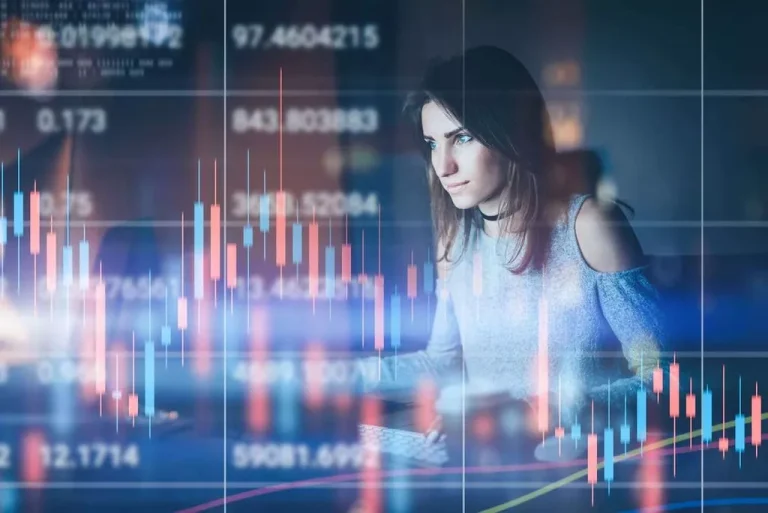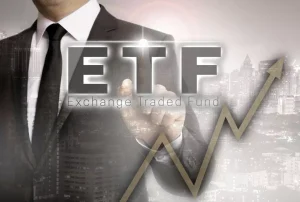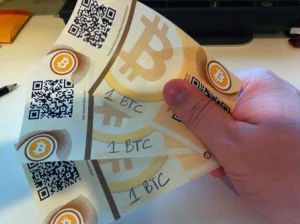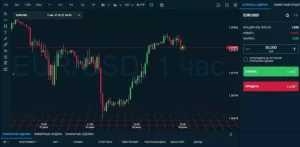Dark pools are a category of alternative trading systems (ATS) that deal with vast volumes of securities away from society’s control. Such commercial platforms are called «dark» due to the lack of clarity, which benefits many participants but may not create the most favorable conditions for standard investors. The primary market members often select dark pool trading instead of classic exchanges because they may handle thousands or millions of shares without anxiety about changes in value.
Dark pools have grown so much in recent decades, and specialists are concerned the share market will be unable to demonstrate the fair worth of assets. Although data varies, estimates in 2023 demonstrate dark pools accounted for 13.75% of the American share volume and 7.50% of the entire value traded in the European region. Let’s talk in more detail about ATS functionality and what their strengths and weaknesses are.
How Do Dark Pools Work?
In recent decades, the popularity of virtual dealing has risen, so most exchanges operate only in digital mode. It has led to the boom of ATS platforms, which enable members to interact with securities in the aftermarket with minimal fees because institutional financial establishments or traditional marketplaces do not control them.
ATS are ideal for major members who favor block deals – most likely when they have a considerable position in the investment.
Block trades involve purchasing or selling a package of shares or bonds between two participants. There are no exact criteria to define block operations. As a rule, the agreement is substantial and can radically change the cost of the assets.
Standard investors may deal with shares without affecting the basic asset’s value because the aftermarket suggests many securities. Simultaneously, big players can obtain or sell so many shares it may change their cost.


Turnkey Brokerage Solution For Your Business
Get the most profitable fully licensed fx/crypto brokerage software or ready-to-operate business in 48 hours. Best-in-class web & mobile trading platforms, sales-driven CRM, full integration with MT4/5, and 150+ payment providers.
Types of Dark Pools
Dark pools and other categories of closed exchanges operate with private agents whose performance meets Securities and Exchange Commission (SEC) standards. It means the authorized bodies track the performance of these intermediaries despite possible problems with clarity and unequal access to assets it can generate for leading institutions. Let’s look at the most popular groups of ATS, which differ in the kind of algorithms or category of brokers involved in executing operations.
Agency Broker or Exchange-owned
Exchanges or independent agents form such ATS. They perform as neutral members, connecting asset owners and purchasers, but are not directly involved in transactions.
Professional brokers offer expert advice, ensuring traders receive clear and up-to-date guidance. Such agents have access to numerous financial assets, providing clients with significant investment potential. The leading downside of this solution is more considerable charges compared with other agents’ categories.

Broker-dealer-owned Dark Pools
These ATS are managed by broker-dealers. Such agents may engage in financial operations to improve their economic position and transact on behalf of customers for a fee.
Such broker dealer sets prices, considering operations volumes and cost analysis. The valuation procedure enables the selection of an acceptable value for dark pool stocks and bonds that correspond to market conjuncture, the parameters of risk, and the economic position.
Electronic market makers
These ATS are the responsibility of high-frequency trading (HFT) organizations. They adopt sophisticated mechanisms to connect asset owners and purchasers and execute operations on their accounts.
An essential advantage of such pools of electronic market maker (EMM) is that they provide significant dark liquidity with HFT structures to guarantee fast and successful deals. Simultaneously, the downside of the market makers is their vulnerability to HFT algorithms and aggressive area members.
Uses of Dark Pools
Such ATS dark pool is an excellent solution if we speak about leading members who plan to place considerable orders that cannot be completed in the aftermarket due to liquidity and accessibility issues.
Let’s assume a financial establishment decides to sell 2,546,000 shares on standard exchanges. The procedure follows this algorithm. The organization initiates an order from a brokerage firm for a few days to evaluate costs and commercial valuation and define optimal asking and bidding values.
In the near future, the organization must sell securities in separate batches of up to 100,000 shares, considering economic conditions.
Active market participants quickly notice such processes and actively speculate on the asset’s costs, raising sales of shares, so their worth may collapse like a domino.
It means ATS allows investment market players and institutions to instantly place commercial orders with HFT and algorithmic trading without human intervention. Computer programs divide a batch of securities into small parts and put them on several marketplaces, choosing the optimal prices.
With dark pools, you may find large financial organizations ready to accept such orders and complete the execution with the former owner in a few seconds. It lets you perform operations quickly and confidentially to prevent dark pool data leakage and third-party interference.
Advantages and Disadvantages of Dark Pools
Discussions continue around dark pools in the trading area. Some members praise ATS for their anonymity, while others complain it forms two-tier financial markets that suggest better conditions to more prominent entrepreneurs. In this chapter, you’ll examine the strengths and weaknesses of ATS. Among their profits, we should highlight:
- Privacy: Dark pools let business people interact with considerable volumes of securities without revealing their plans to other persons. It is beneficial for big investors who are trying to prevent market interference in their commercial activities. By hiding their performance, they can avoid slippage if the market moves against them.
- Reduced market exposure: With exchange dark pools, major members decrease their market exposure, meaning the cost of the securities they interact with will remain unchanged after their trade. Entering into such operations in the open market may cause considerable fluctuations in value, which could deprive the investor of additional profits.
- Cut operation costs: ATS suggests lower spending than trading on a classic exchange, as members can negotiate a minimum commission based on their commercial volumes.

Don’t forget about some of the downsides of dark structures:
- Lack of clarity: Because systems operate secretly, information about dark pool trading and all terms is inaccessible to society. It is vital for smaller members who do not have access to major market players’ insights.
- Potential Abuses: ATS can be utilized to carry out illegal activities, including insider trading and industry manipulation. While regulators strive to limit such activity, there is a possibility that entrepreneurs could be harmed by unscrupulous members who operate in ATS.
- Restricted Access: Dark pools form a two-tier system that favors major participants over regular investors. They may carry out transactions on more favorable conditions, which leads to losses for other area players.
Dark pools suggest both profits and downsides to members. Although they guarantee confidentiality, lack market influence, and minimal expenditures, they lack clarity, create an uneven playing field for different members, and can be utilized as an element of fraudulent activities. Entrepreneurs need to define the strengths and weaknesses of such a system and make a rational decision, considering their risk appetite and investment objectives.
Specifics of Dark Pool Exchange Regulations
While dark pools are considered controversial structures because they provide a considerable advantage to major investors over standard area members, they are heavily monitored by the SEC, which relies on laws dating back to the spring of 1979. This standard provides assets listed on an exchange may be sold outside of it.
At that moment, interaction with ATS was limited to a few organizations and did not affect the overall area situation. Over the next 20 years, the volume of «dark» operations did not exceed 5% of the final cost of area activity.
The growth of HFT increased the speed of procedures as organizations sought to execute market orders as quickly as possible and stay ahead of competitors to maximize revenue from their performance. It worsened terms for organizations front-ran by others, and many of their operations became unprofitable.
In 2007, the National Market System norm became effective, allowing firms to bypass public marketplaces and carry out transactions on closed exchanges to raise earnings. This norm and the active evolution of HFT have led to many new closed trading structures.
Two years ago, the SEC dark pool proposed a directive requiring ATS members to execute orders on the open portals rather than on closed exchanges unless the dark pools suggest a considerable pricing advantage. It is a warning to major enterprises that the basics of trading pools may change, and their capital movements may become accessible to society.
Criticism of Dark Pooling
Despite the many security measures, ATS remains the object of critique from various quarters. One of the leading criticisms of this is that they may be utilized to start financial manipulation, where major players can carry out transactions without the knowledge of society. It can lead to a loss of clarity and form unfair area conditions.
A once more common critique is dark pool trading can be utilized in predatory commercial structures, including «advance management», that is, an entrepreneur receiving insights about a planned deal to profit before it is executed, and «spoofing», where a market member places a lot of fake orders to adjust area conditions.
Dark pool is a frequent trading platform that provides major members with many profits, including decreased market exposure, operation spending, and increased anonymity. However, these profits come with some risks, including loss of precision and manipulation of costs. Despite some disadvantages, hidden pools play a crucial role in modern finance, creating profitable alternatives to classic marketplaces.






